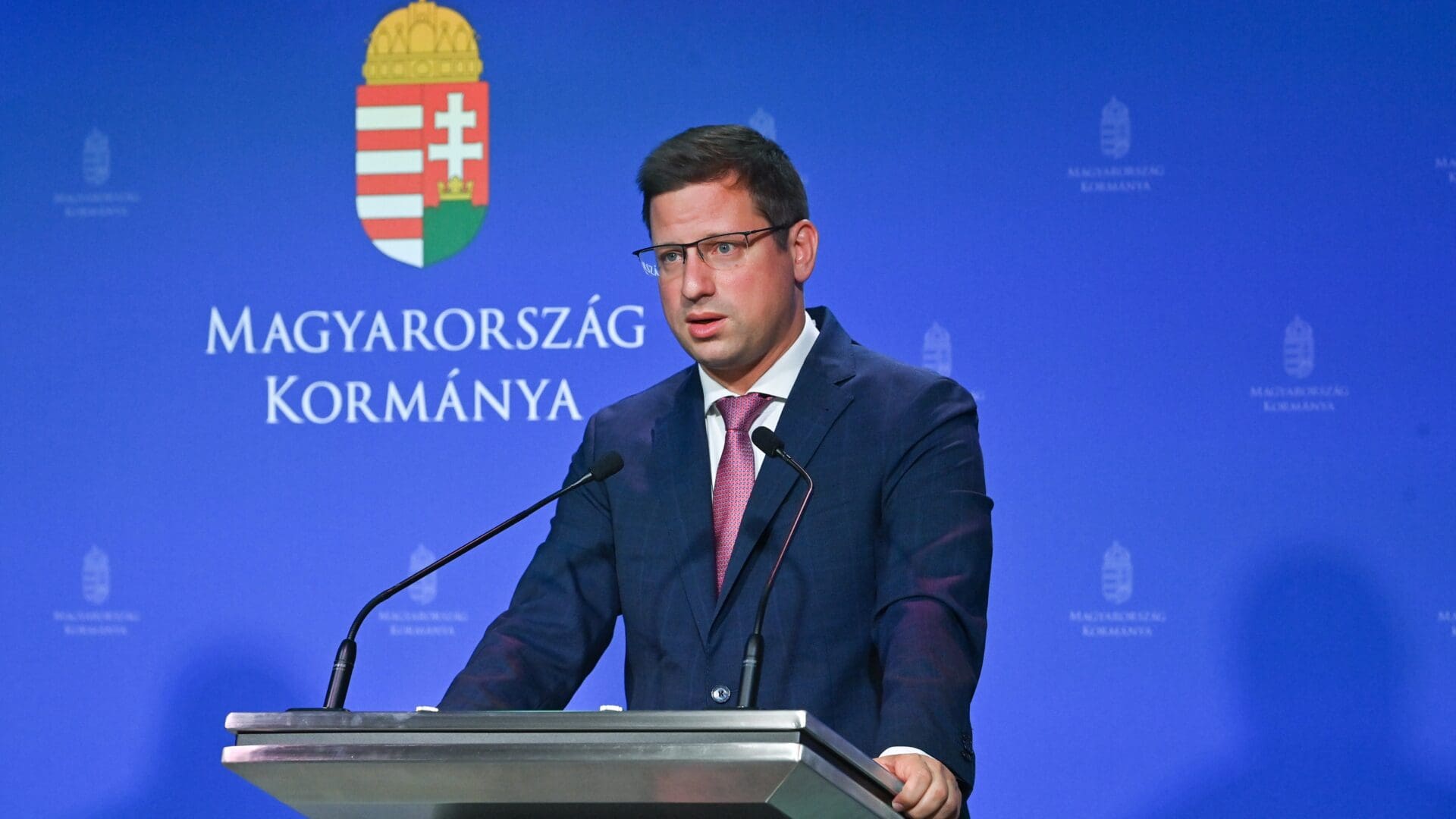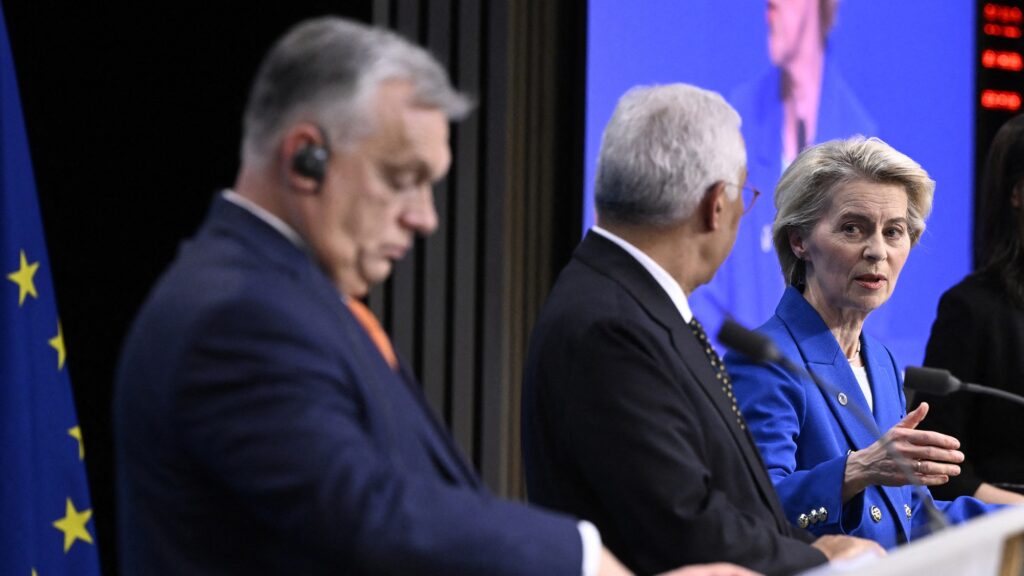‘The biggest negative aspect of the mandatory EU migrant quota regulation is that it forces migrants onto Europe, Hungary, and the Hungarian people, effectively sending an invitation to millions of migrants,’ Chief of the Prime Minister’s Office Gergely Gulyás declared at Thursday’s Government Info press conference in Budapest.
The minister emphasised that all responsible governments in Central Europe, ‘where societies are still shielded from all the consequences associated with migration,’ must do everything in their power to prevent this ‘completely senseless and insane regulation’ from taking effect. That’s why the Hungarian PM did not allow a joint statement to be adopted by the heads of state and government at the EU summit, he explained. He highlighted that the legislative proposal is not only about mandatory quotas and resettlement, but it
also includes the obligation for Hungary to process at least 10,000 asylum requests annually.
To do this, the country would have to allow them into its territory and create reception centres for them, he said. He added that the idea of these reception centres is equivalent to tearing down the border fence because anyone who applies for asylum at the border should be allowed into the country.
Gulyás added that the good news is thanks to the resistance of the Visegrád countries as well as of Germany and the Netherlands the fast-tracking of the approval of the introduction of the migrant quotas in the European Parliament has been blocked. Coordination with the EU Parliament will continue in September, he noted.
In response to a question, government spokesperson Zoltán Kovács shared that since the outbreak of the Russo-Ukrainian war, 1,150,000 refugees have passed through Hungary, and 34,000 have been granted protected status.
Minister Gulyás also announced that Brussels requested a further 98.5 billion euros in contributions from the member states, which is fifteen times the total annual personal income tax revenue in Hungary and roughly equals the entire annual Hungarian state budget. Even if a significantly lower amount ends up to be paid by Hungary, the proposed sum is still enormous enough for even Austria or Germany refusing to accept it in this form, he pointed out. He stressed that several questions need to be clarified, including how Brussels spent the money loaned, because there should be not less, but more money in the budget, with Hungary and Poland not having received a single eurocent yet. Moreover, the countries that received funds from the Recovery and Resilience Facility are complaining about slow payouts, he said. He pointed out that according to Brussels’ request, 50 billion euros would go to Ukraine, and the European Commission wants to finance interest payments, and spend the money on migrants, but not on border protection. Additionally, one and a half billion euros would be allocated towards salary increases for the Brussels bureaucracy. Hungary cannot consent to these proposals, and since any changes to the budget require unanimity, there is no realistic chance of the budget amendment being accepted, Gulyás stated.
Gulyás added that Brussels makes numerous demands on Hungary in the economic area as well. This is true for the Recovery and Resilience Facility as well as for the European Semester, which evaluates the economic governance of the EU member states. He added that Hungary will conduct these examinations, but Brussels cannot impose any mandatory requirements that would justify reducing the amounts spent in specific areas.
The minister stated that the government would like to increase salaries in public education. Approximately 12 to 13 per cent of the wage increases committed until 2030 could be paid from the EU funds. He stressed that as soon as the funding is disbursed, there will be a rapid and significant pay raise for teachers,
with the average salary possibly reaching eight hundred thousand forints within a year and a half,
that is by the end of the government cycle, and by 2027, at the latest, it would grow to one million forints.
Gulyás asked left-wing MEPs—who earn a net monthly income of six million forints in euros in Brussels—and the parliamentary groups they belong to not to obstruct Hungary’s access to EU funds. He called on them to urge the Commission to take the first major step for Hungary in line with the agreement regarding the operational programme by September this year.
The minister confirmed Hungary’s previous position that any kind of distribution mechanism, including the imposition of a quota system, is unacceptable, and the current migration proposals are contrary to Europe’s interests. Gulyás also mentioned that Hungary has spent 650 billion forints so far on border protection and has sent its claim for reimbursement to Brussels.
Related articles:
Source: Hungarian Conservative/MTI







